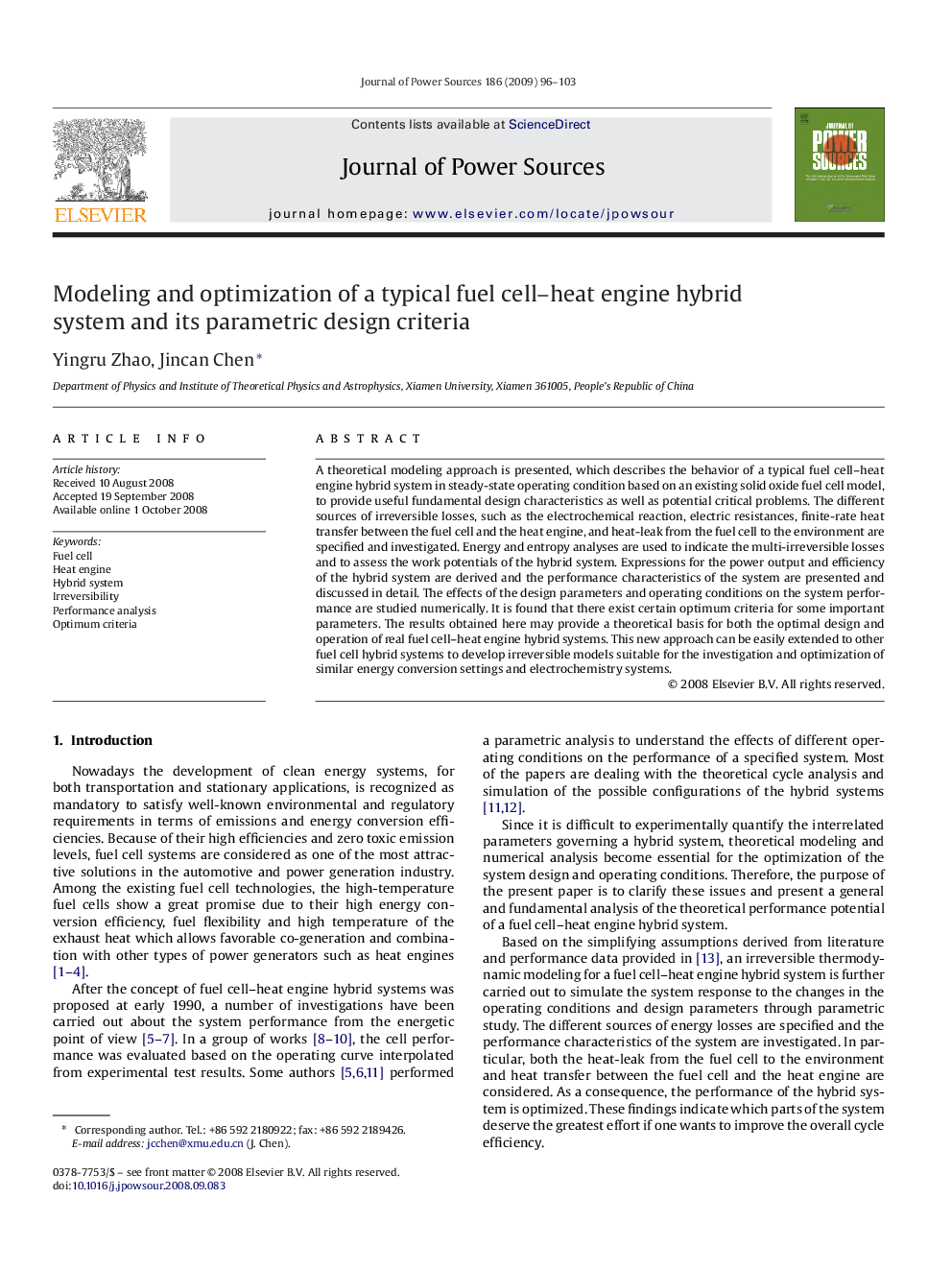| Article ID | Journal | Published Year | Pages | File Type |
|---|---|---|---|---|
| 1289899 | Journal of Power Sources | 2009 | 8 Pages |
A theoretical modeling approach is presented, which describes the behavior of a typical fuel cell–heat engine hybrid system in steady-state operating condition based on an existing solid oxide fuel cell model, to provide useful fundamental design characteristics as well as potential critical problems. The different sources of irreversible losses, such as the electrochemical reaction, electric resistances, finite-rate heat transfer between the fuel cell and the heat engine, and heat-leak from the fuel cell to the environment are specified and investigated. Energy and entropy analyses are used to indicate the multi-irreversible losses and to assess the work potentials of the hybrid system. Expressions for the power output and efficiency of the hybrid system are derived and the performance characteristics of the system are presented and discussed in detail. The effects of the design parameters and operating conditions on the system performance are studied numerically. It is found that there exist certain optimum criteria for some important parameters. The results obtained here may provide a theoretical basis for both the optimal design and operation of real fuel cell–heat engine hybrid systems. This new approach can be easily extended to other fuel cell hybrid systems to develop irreversible models suitable for the investigation and optimization of similar energy conversion settings and electrochemistry systems.
